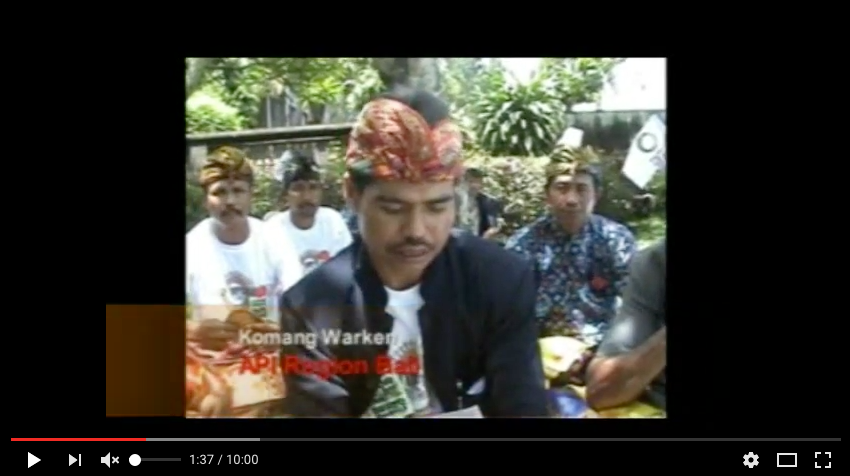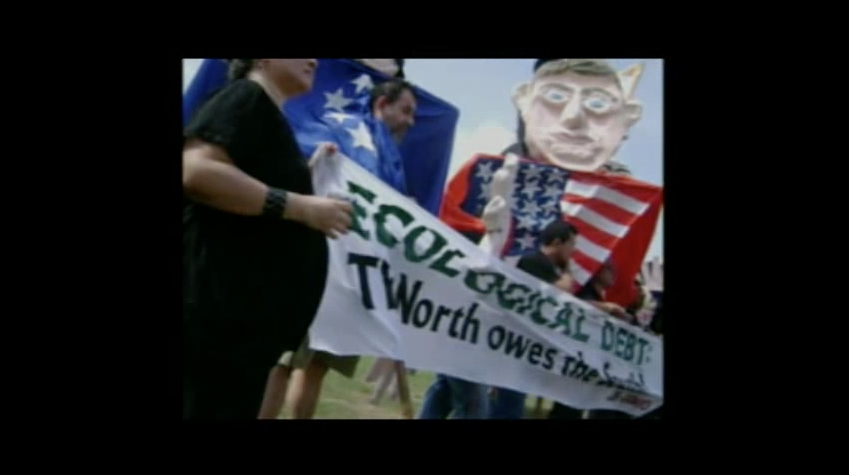Global Warming, Global Poverty (Part 1)
A short video documentary of AFA's participation (through its Indonesia member Aliansi Petani Indonesia or API) in activities organized by civil society organizations (CSOs) parallel to the conferences of the UN Framework Convention on Climate Change (UNFCCC or FCCC), such as the thirteenth session of the Conference of the Parties (COP 13) and the third session of the meeting of the parties to the Kyoto Protocol (CMP 3), in Nusa Dua, Bali, Indonesia last December 3-14, 2007. API has been invited by some CSOs who organized the parallel activities to UNFCC.






